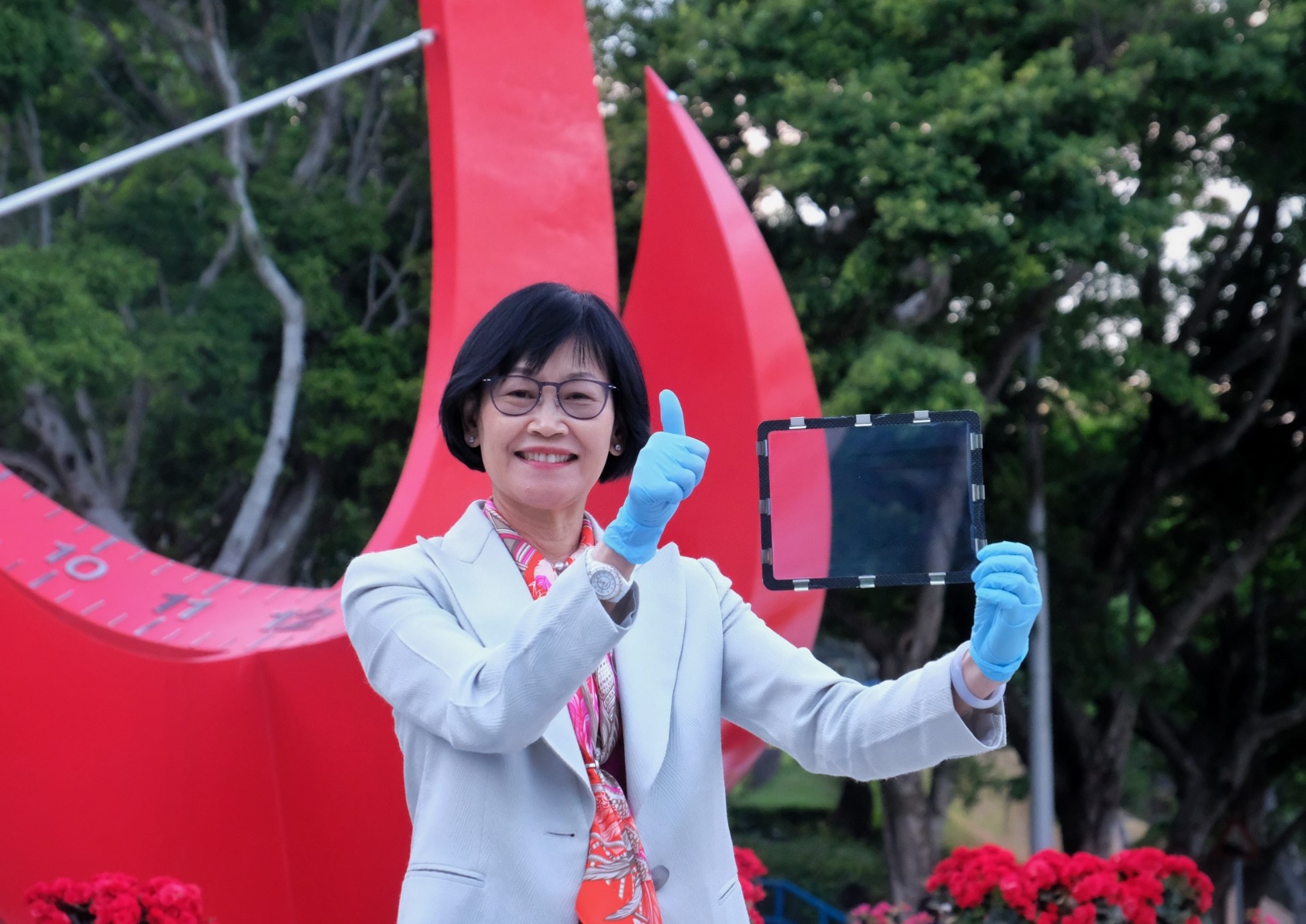

MOVING BREAKTHROUGHS FROM CONCEPT TO COMMERCIALIZATION TO BENEFIT THE COMMUNITY
As more HKUST research teams seek to move their discoveries from lab to market to improve people’s lives, the University’s KT pipeline is generating a range of ventures that are taking exciting new innovations into the community. In the case of polymer material expert Prof. Ping Gao, Department of Chemical and Biological Engineering, and her team, this has led from IP protection to the founding of two start-ups that are seeking to utilize the researchers’ multifunctional polymer nanofilm technology.
The research team’s new material is ultrathin and super-strong, free-standing and self-supporting, with other benefits including high transparency, gas permeability, and tunable porous properties. Such a range of significant characteristics makes it suitable to serve as a platform for product development in numerous areas, from water/air filtration and wearable electronic devices to antibacterial film for healthcare and flexible ultrathin batteries for energy. The technology’s potential has also garnered international recognition, receiving a Gold Medal with Congratulations of the Jury at the 2022 International Exhibition of Inventions of Geneva.
With early contact between KT units and research teams, an established part of HKUST’s KT ecosystem, KT colleagues facilitated the researchers take their first essential steps to commercialization by protecting the IP arising from the original research and by developing an effective patent filing strategy. A total of 12 patents for associated technologies have since been filed.
This close working relationship further assisted the research team after they established the two start-ups. Through the KT team’s guidance, the companies and their founding teams were able to apply for the most suitable schemes and funding to optimize their growth and entrepreneurial progress at different stages of development. These included: the Bridge Gap Fund and HKUST-Kaisa Joint Research Institute for technology incubation and test-bedding; Entrepreneurship Acceleration Fund to boost innovation and entrepreneurship development; the Tech-Ship Program, introducing faculty research outcomes to students keen to form partnerships with academics for technopreneurship development and to build start-up team skills; and the Technology Start-Up Support Scheme for Universities, with funding for promising young companies provided to HKUST by the Innovation and Technology Commission (ITC).
The first start-up, PointFit, has now licensed nanofilm technology to develop a non-invasive sweat sensor to alert athletes to muscle fatigue levels while training through a connected mobile app. The second, GP Nano, is currently exploring further applications related to the nanofilms. Meanwhile, cutting-edge research into the field is set to extend at HKUST(GZ), where the first laboratory devoted to ultra-thin polymer membrane materials at a university in China is being set up. The new campus is due to open in Nansha in September 2022.
